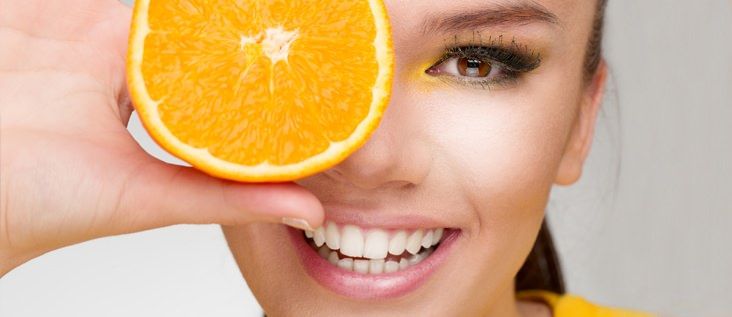Most people have heard the saying,”an apple a day, keeps the doctor away”. Phrases like this acknowledge and imply what most of us already know, that a healthy diet benefits our body! Just like the rest of the body, our eyes also benefit when we consume healthy, nutritious foods. However, when it comes to eye health and nutrition, there is more to it then just consuming a ton of carrots. Even though carrots are good for us and we get nutritional eye elements from them, we need to consume a balanced diet that contain other nutrients and vitamins for eyes. Lutein zeaxanthin,phytoceramides, omega 3 fatty acids, vitamin C, vitamin E, beta-carotene, and zinc, are all nutritional elements that help to promote healthy eyes and healthy vision.
Minerals, Antioxidants, & Vitamins For Eyes
Lutein And Zeaxanthin
Lutein and zeaxanthin are antioxidants for blue light absorbtion. These components are created by plants. The only way that us humans naturally get lutein and zeaxanthin, is by having a good serving of plants in our diet. Foods that are rich in lutein are green leafy vegetables, such as kale, spinach, and yellow carrots. Lutein and zeaxanthin are important in maintaining healthy eyes and good vision because these antioxidants benefit the part of the eye that is responsible for sharp central vision (the macula). This in return helps combat eye diseases, like macular degeneration. Macular degneration specifically targets and damages this area of the eye.
Omega 3 Fatty Acids
Omega 3 fatty acids, are a family of different kinds of fatty acids. These fatty acids should be an essential part of a nutritious diet and are found in foods such as, oil-rich fish and nuts. Omega 3 can also be substituted into a diet with pill supplements (fish oil pills) or by consuming omega 3 fortified foods like eggs, bread and fruit juices. Omega 3s are important to overall health, as they help in the regulation of biological functions. They are found in every cell in our body, including the eyes. Within our eyes omega 3s are found with a concentration of it being in the retina. Omega 3 fatty acids, can help in the reduction of dry eye syndrome by increasing tear quality.
Vitamin C
Vitamin C is a powerful antioxidant. It is essential for proper functioning of many different systems within the body. Unfortunately, our bodies cannot create its own vitamin C. Therefor, it is important to get our vitamin C by eating the appropriate number of servings of fruits and vegetables. Some foods that are high in vitamin C are, oranges, grapefruit, papaya, bell peppers, broccoli, kale, and raspberries. If non of those food items appeal to your pallet, there are many other fruits and vegetables that also contain good servings of vitamin C. Vitamin C is just one of the vitamins for eyes that is needed to maintain eye health. Vitamin C has been shown to assists in preventing the progression of cataracts.
Vitamin E
Along with vitamin C, vitamin E is another powerful antioxidant and vitamins for eyes, that helps protect the cells of the body from free radicals. Foods that are rich in vitamin E are nuts and seeds. Vitamin E is beneficial to eye health as studies have shown that it helps in the prevention of cataracts, but it also may also help decrease the chances of developing macular degeneration.
Beta-Carotene
Beta-carotene is a naturally occurring pigment found in plants. It is often associated with carrots and is responsible for giving carrots their vibrant orange colour. After eaten, beta-carotene is converted into vitamin A (retinol). Beta-carotene helps in the maintenance of healthy skin and eyes. Along with carrots, other fruits and vegetables such as sweet potato, cantalope, butternut squash, sweet red peppers, peas and broccoli also contain beta-carotene.
Zinc
Zinc is an essential trace mineral that’s important for various parts of the body. Zinc is important for vision because it is found within parts of the eye, such as the macula and retina. With the help from other vitamins, zinc enables the creation of melanin. Melanin is a pigment which protects the eye. Along with eye protection, some studies have shown that getting enough zinc can even help you see better at night! Foods that are abundant in zinc include seafood, beef and lamb, spinach, pumpkin, and squash.
So when preparing your next meal, try to incorporate all the food groups. By doing this, you should be able to receive moist of the nutrients and vitamins for eyes needed to help maintain healthy vision. And remember, theres more involved with your eye health then just eating carrots!
Article Written By: Trina Vanaalst

